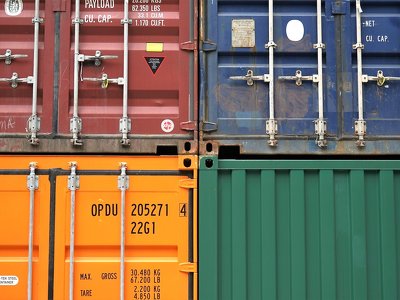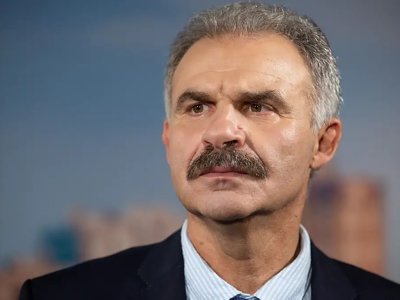Russian logistics companies look East and try “to think big”

Russian logistics companies are redirecting their operations towards the east and learning to work with new partners, according to Aleksey Bezborodov, a managing partner of the Russian Infra Projects company.
For the Russian economy in general, 2024 will be a crunch time, as it will test the government’s ability to re-launch key industrial sectors, he said.
“There has been a change of business partners — the former Western partners, who broke the rules and pulled out of their obligations, have been replaced with others, from China, Vietnam, Egypt and Turkey,” Bezborodov told Logistan Telegram channel when asked how 2023 went for Russian logistics companies.
He said “the re-orientation towards the East” has led to the opening of new logistics facilities and infrastructure improvements.
“The processes that were already under way in Russia have accelerated and become more defined and more tangible,” said Bezborodov, who also heads InfraNews consulting agency.
There is “active” investment in new storage facilities, and logistics terminals across Russia, including Moscow and other big cities, he said.
The new conditions have also boosted e-commerce, Bezborodov told Logistan, which reports on economic developments in Central Asia.
He said work on “east-oriented” projects was going on already before the sanctions, “but they kept being postponed” for “objective reasons”.
“Nobody really knew how to work with China; negotiations with Iranian partners seemed long and difficult. Now that Russia has fewer choices regarding its development vector, it has turned out that such re-orientation is possible and needed, and the sooner the better.”
Bezborodov said some projects had been taking off “surprisingly fast”, for example import of Chinese vehicles.
“The [Russian] market’s saturation with them was bound to happen in any case. But if not for our turn towards the east, it would happen by, say, 2027, give or take a few years – it [Chinese cars’ domination] would only be ‘softened’ with imports of German cars for a certain category of wealthy citizens,” he said.
Asked in what area Russia failed in 2023, Bezborodov said it has not managed to achieve full import-substitution.
“However, it is a long process, which cannot be completed in a year-and-a-half, or two years. What gives me optimism is that the current situation has spurred people on.
“Businesses are on a constant lookout for new opportunities, constantly investing and developing. In Russia there are currently a huge number of companies which do literally everything. In this sense, the crisis has had a positive impact,” he said.
Regarding the process of developing the North-South transport corridor, Bezborodov said despite its official opening in 2004, until now nobody had been “seriously” working on it because of Iran being under international sanctions.
“Now it turns out it is possible to figure out mechanisms of cooperation between China, Iran and Russia despite the sanctions which allow us to work on it,” he said.
“The boundaries of what is possible have considerably shifted. Those who cannot work [in new conditions] will be replaced with others, who are able to negotiate with new partners and to work out new ways of operating.”
“We do have to be aware of the huge difference between the Chinese and Iranian economies. We have to know our partners’ peculiarities and interests, while clearly understanding the limits of our own interests and possibilities,” he added.
Bezborodov said he expected 2024 to be an “interesting” year, because the Russian government would have to report on the progress of its projects to boost the aircraft, car and shipbuilding sectors.
“2024 is a deadline for launching certain manufacturing and business processes. If we delay their start, much of what we have planned to achieve by 2027 and 2030 might not happen,” Bezborodov said.
He also advised Russian businesses to “think big and not to be lazy”.
“We do not have any other choice,” he said.
- Последние
- Популярные
Новости по дням
4 мая 2024







